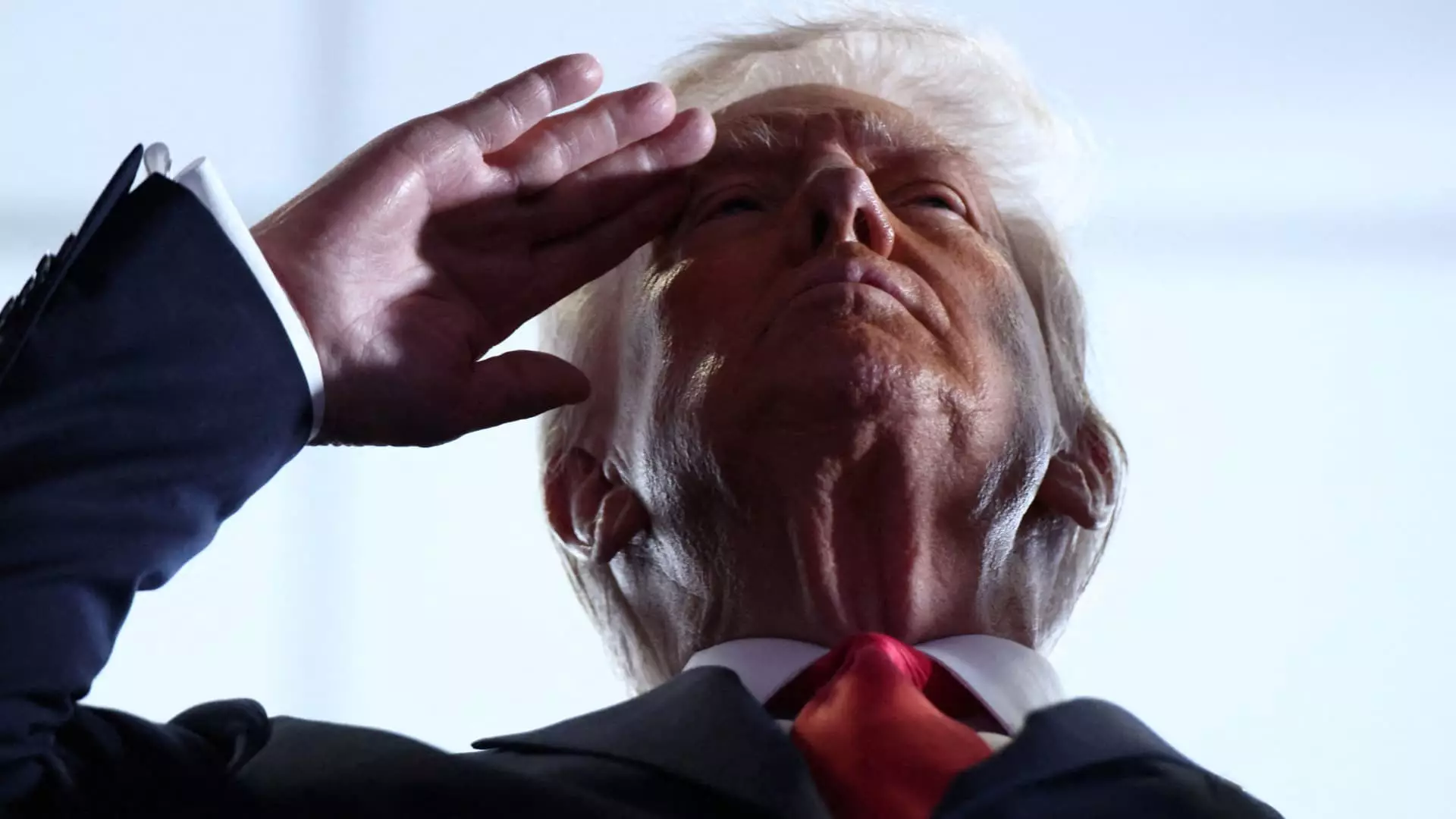The beginning of Donald Trump’s second presidential term has ignited various public opinions and evaluations regarding his administration’s performance. A recent CBS News/YouGov poll indicates a notable bump in Trump’s job approval ratings, marking a significant point in his political journey. With 53% of U.S. adults proclaiming satisfaction with his in-office job so far, Trump appears to have garnered more widespread acceptance. Nevertheless, a deeper exploration reveals a complex tapestry of public sentiments that encapsulate both approval and skepticism about his policies.
The 53% approval rating is a compelling figure in the context of Trump’s political career, suggesting that a portion of the American populace resonates favorably with his current trajectory. Interestingly, descriptors such as “effective,” “focused,” and “tough” surfaced frequently in responses, painting a portrait of a leader whose determination resonates with a faction of his supporters. However, a glaring statistic lingered—only 37% of respondents categorized him as “compassionate.” This stark contrast invites reflection on the broader implications of his leadership style.
The dichotomy of admiration for his decisiveness coupled with a significant portion of the populace doubting his empathy raises questions about the kind of president Trump aims to be. Are these statistics merely a reflection of partisan divides, or do they indicate deeper issues related to public perception of leadership qualities?
One of the poll’s standout findings is that 70% of respondents believe Trump is fulfilling his campaign promises. Yet, this confidence is veiled by uncertainty surrounding specific policy implementations. Central to public discontent is the question of economic policy—specifically, inflation and its implications on everyday life. A sobering 51% of survey participants predict that Trump’s policies will lead to increased grocery prices, underscoring an apparent disconnect between political promises and reality.
Tariffs, a cornerstone of Trump’s economic strategy, have provoked widespread skepticism. While support for tariffs on China stands at 56%, a majority of 73% of respondents fear that these measures will lead to higher costs of living. Furthermore, it’s important to consider the economic perspective of individuals; people care about tangible outcomes rather than political rhetoric. The divide in opinions regarding the tariffs not only showcases the complexities in public sentiment but also emphasizes the challenge in navigating protectionist policies without inflicting undue harm on consumers.
Among the areas where Trump appears to retain robust support is immigration policy. With alarming statistics indicating that nearly 59% of respondents approve of his initial measures to deport undocumented immigrants, it seems to reflect a broader concern regarding national security and border integrity. Additionally, Trump’s proposal to deploy U.S. troops to the southern border received even higher backing at 64%. In a politically charged atmosphere, these figures could provide insight into voter priorities, which principally focus on immigration as a critical issue.
However, Trump’s handling of other contentious matters, such as pardoning individuals involved in the January 6 Capitol riot, drew significant criticism—58% of respondents disapproved of these actions. This disparity underlines the dual nature of Trump’s support base: while specific policies resonate strongly, actions perceived as undermining democratic principles provoke backlash.
In foreign policy matters, Trump’s response to international conflicts, particularly between Israel and Hamas, reflects the broader complexities of international relations. With approval ratings receiving 54% amidst significant opposition from Democrats, this suggests that foreign policy remains an area where Trump can rally some support, though his strategies may polarize diverse segments of the population.
The establishment of initiatives such as the Department of Government Efficiency under Elon Musk also presents a prospect of substantial change within the federal bureaucracy. While public opinion remains ambivalent regarding the task force’s influence, a plurality believes Trump’s administration is focusing appropriately on reducing government spending and foreign aid, indicating a desire for more efficient governance.
The initial approval ratings of Donald Trump during his second term reflect a tumultuous and polarized landscape. Bolstered by some notable successes in specific areas, including immigration, the overall sentiment remains marred by skepticism, particularly related to economic issues. As Trump continues navigating the challenges of governance, it’s clear that while he commands a significant percentage of support, the journey ahead is fraught with complexities that require addressing the nuanced concerns of the American public. Ultimately, the dichotomy represented in the CBS poll serves as a bellwether for the challenges inherent in leading a nation where public opinion is tremendously divided.


Leave a Reply